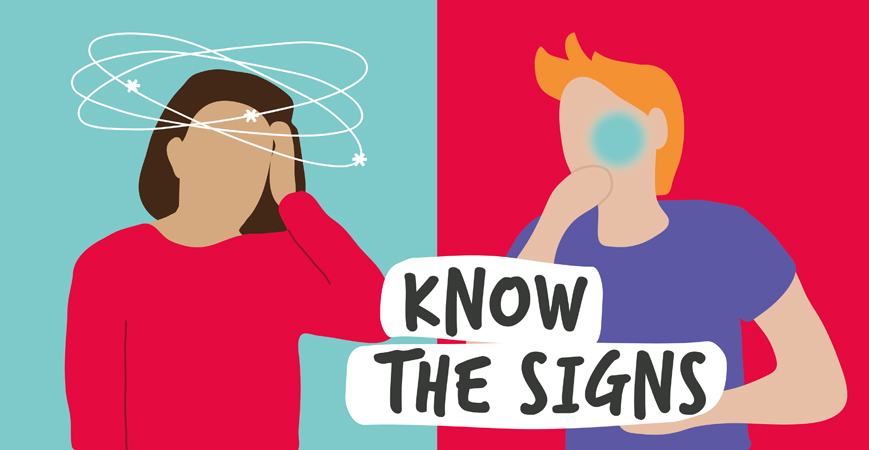What to do if you think you might have a brain tumour during the coronavirus pandemic
With changes to healthcare being introduced to reduce the spread coronavirus, you may be unsure know what to do if you think you might have a brain tumour. So here’s the advice from our brain tumour experts.

On this page:
What should I do if I think I have a brain tumour?
Make sure you’re aware of the possible symptoms of a brain tumour, if you’re worried, a symptom persists or you have more than one of these symptoms then you should talk to your doctor.
It’s important that you still contact your GP if you’re experiencing symptoms related to a brain tumour. The NHS is still open and ready to support non-covid concerns.
Most GP surgeries have started to offer phone or online appointments to reduce the amount of face-to-face contact. So, in the first instance, it’s best to contact them this way.
If they feel it’s appropriate, they might then invite you in for an appointment for further assessment or make a decision to refer you for further investigation if they feel you’re at risk.
It may be helpful to prepare for the appointment to make sure you remember everything you wanted to say or ask.
I’ve been referred by my GP with a suspected brain tumour. Should I attend my hospital appointment?
In some cases, you’ll receive a call from your hospital and an assessment will be carried out over the phone. Depending on the outcome of this, you’ll then be referred for tests such as a scan, if appropriate, or given an appointment.
It’s important that if you’re experiencing any symptoms of coronavirus, you do not attend any appointments. These symptoms include a temperature of more than 37.8 and/or a new continuous cough. You should let the clinic know as soon as possible so they can plan accordingly.
Those at high risk from coronavirus due to underlying health conditions have been contacted by the NHS advising them to follow shielding measures. If you’re in one of these high risk groups, please contact your medical team and let them know. Don’t attend the appointment without doing so first as they may be able to conduct the assessment over the phone.
Is it safe to attend appointments?
If you’ve been advised that it’s safe for you to go to your appointment, your healthcare professional will have reviewed the risks to your safety before asking you to attend. Many hospitals and GP surgeries are putting measures in place to make sure anyone attending an appointment is being kept safe. This will include:
- using telephone or video calls for appointments where possible
- holding appointments in separate areas of the hospital
- restricting the number of people you’ll have contact with while in the hospital or GP surgery
- disinfecting all medical equipment such as MRI scanners, waiting rooms and consultation rooms
- asking people not to turn up early to appointments, to limit the amount of time spent at the hospital
- asking people to check with their GP or healthcare team before bringing someone with you, such as a close relative or carer
- asking people to use the hand sanitisers provided
- texting you when the clinic or scan team are ready to see you, so you can wait safely in your car.
Brain tumours don’t stop because of covid. Know the signs
Symptoms in adults
Learn about the most common symptoms of brain tumours in adults
Symptoms in children
Be prepared – learn about the most common symptoms of brain tumours in children
Symptoms by location
Symptoms of a brain tumour can vary depending on the tumour's location.